From 1970, a WWII picture from the director of The Dirty Dozen. Released in May 1970, it died at the box office.
In 1942, on an island in the Pacific theater of WWII, a self-centered Naval Officer (Cliff Robertson) gets sent on a jungle mission with some inexperienced British troops to interfere with Japanese radio transmissions, in order to prevent American naval ships from getting blown out of the water by the Japanese air force. Due to the American’s reluctance to follow orders, the mission goes sideways, placing the remainder of the patrol on a survival run, through the enemy-held jungle, toward the British-held end of the island.
Last time I watched this, about 14 years ago, I really didn’t like it. Cliff Robertson’s character, an extremely reluctant hero (as suggested in the film’s title), was so off-putting that I shut the movie off the moment his character throws a wrench into the mission and gets his commanding officer killed.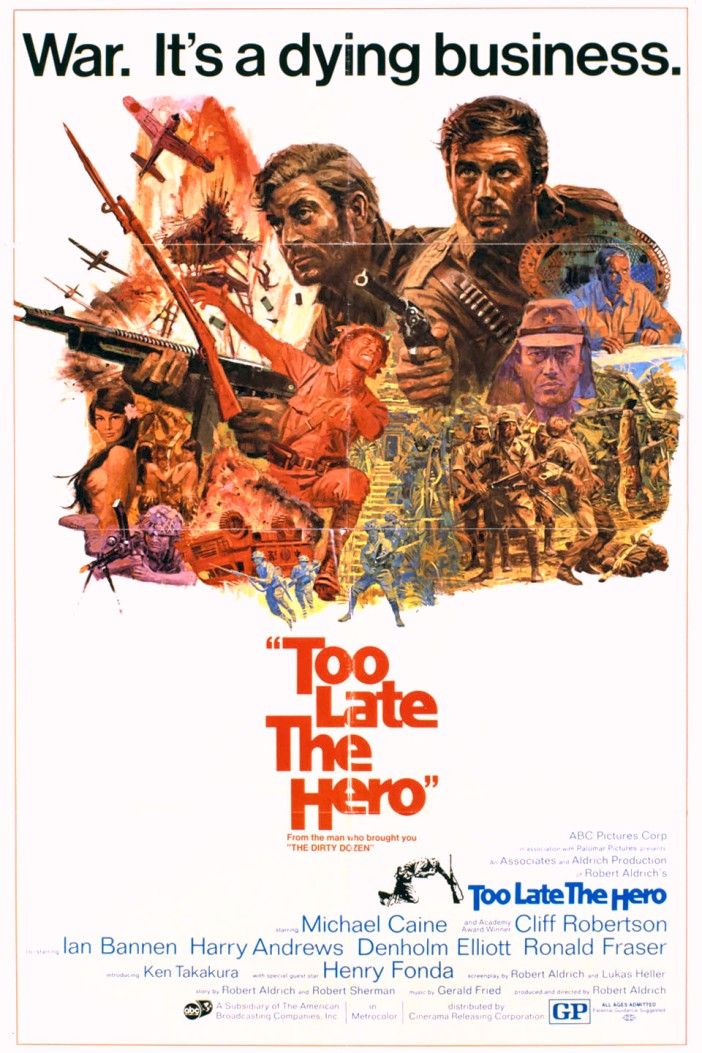
For Too Late The Hero, director Robert Aldrich hadn’t wanted Cliff Robertson in the role to begin with, going on record as saying “Anybody but Cliff Robertson”, whom the director had worked with years earlier in Autumn Leaves (1956).
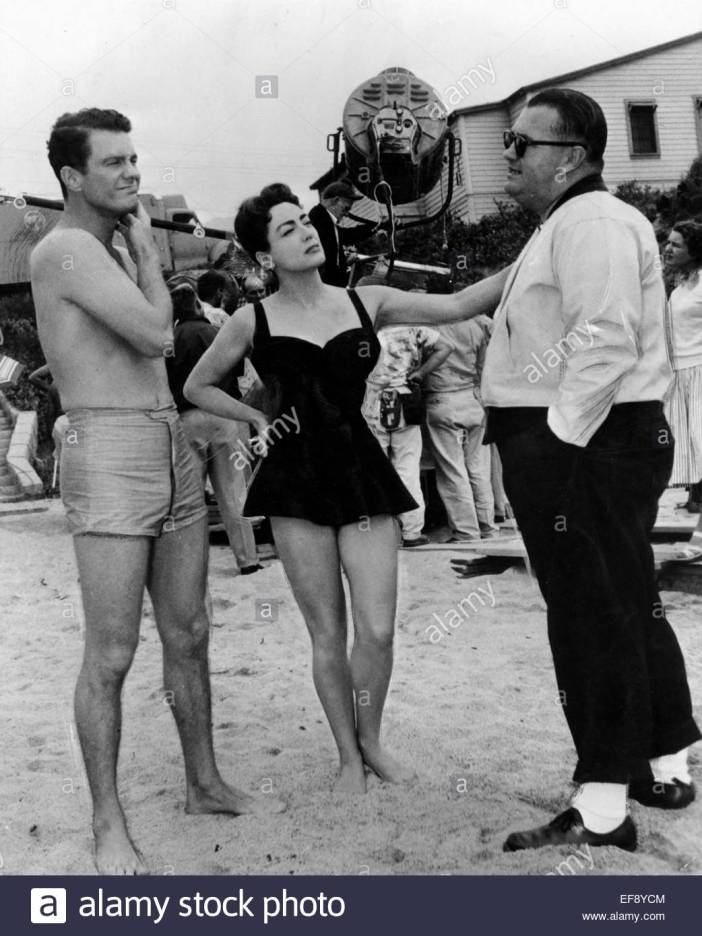
This time around with Too Late The Hero, I let the movie continue. Robertson’s character finally realizes the gravity of the situation (and acknowledges that it’s one his own mistake created) and takes charge, eventually leading the patrol, what’s left of it, out of the jungle to safety.
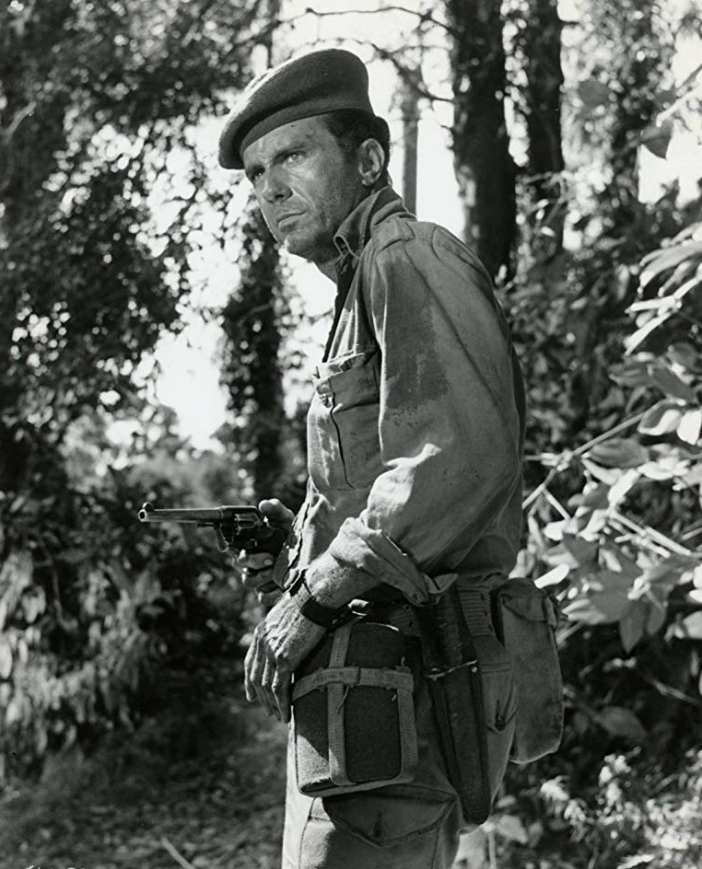
Though there’s bickering amongst the remainder of the patrol as to whether or not they should surrender to the Japanese troops pursuing them, it’s Robertson’s character, the mission’s sole American, who supplies the voice of reason and keeps the patrol moving out of hazard’s way.
During this viewing of the film, after sticking with it, I actually grew to like Robertson’s character. I was finally able to appreciate what the filmmakers were going for. Despite what the film’s advertising implies, Too Late The Hero isn’t an anti-war film, but a pro-survival film.

Typical of Seventies filmmaking, this features a flawed…some would say very flawed…main character who finds redemption through action. Such characters don’t always survive the film, but the audience, at least, doesn’t walk away from the picture hating them.

I still found fault with the film’s portrayal of the Imperial Japanese officer, played by Ken Takakura, which I thought was a bit too soft…
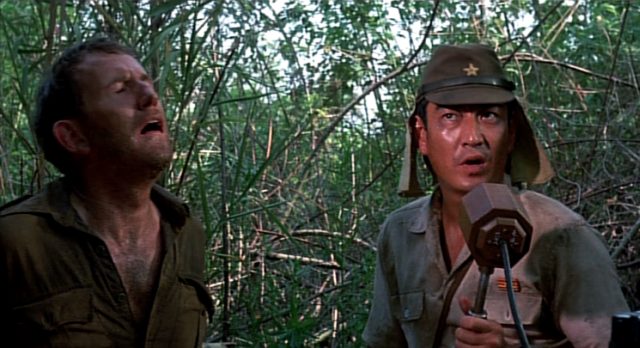
…but, overall, the film wasn’t nearly as revisionist as I’d remembered. It’s certainly no Letters From Iwo Jima, that’s for sure. Not nearly as much moral equivalence in the story as I thought there was 14 years ago, thankfully.
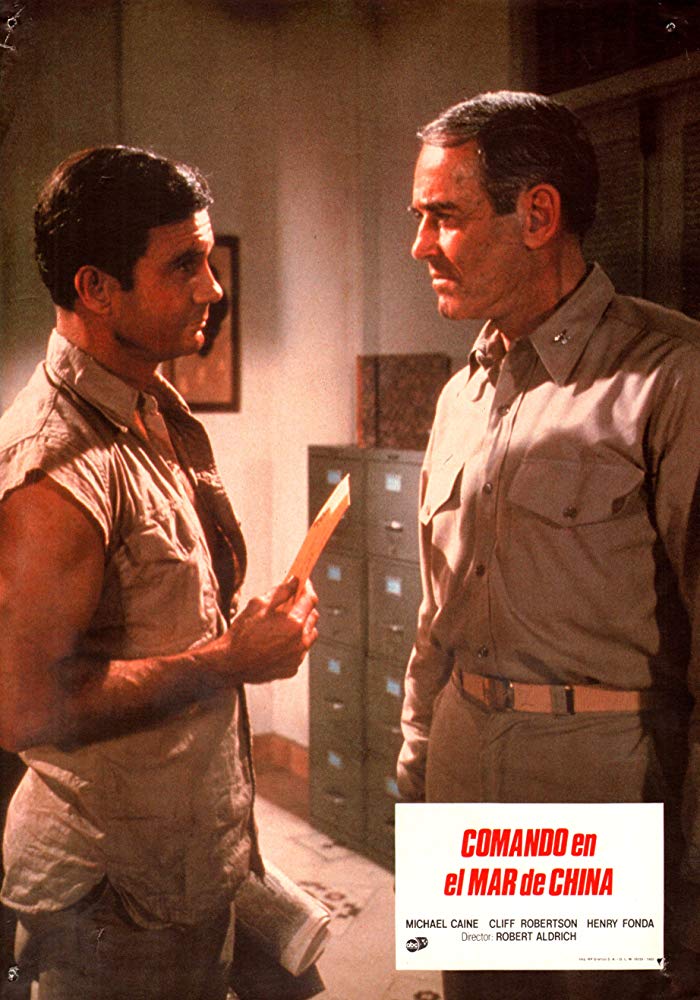
If there’s one consistent trait I admire about Robert Aldrich’s filmography and his tendencies as a director, it’s that he never romanticized the characters that headlined his films. It’s just one of the reasons I responded so favorably to Ulzana’s Raid (1972); Ulzana and his war party aren’t depicted as noble, PC stereotypes, but brutal, yet complicated warriors who simply are what they are. The cavalry soldiers aren’t exactly pure, either.
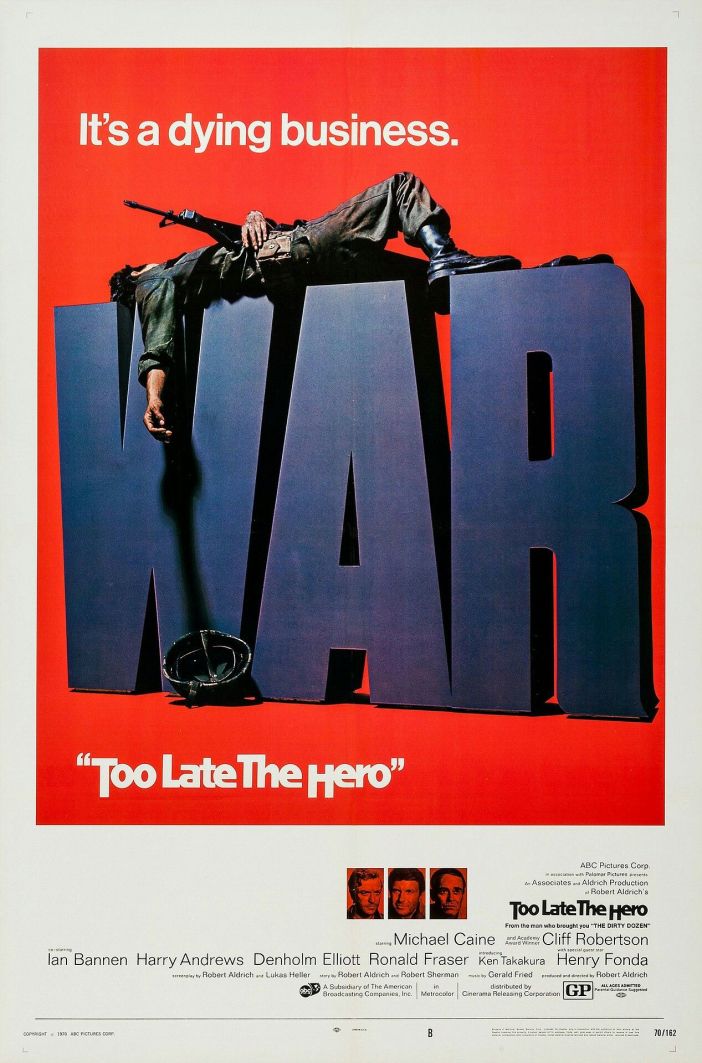
You must be logged in to post a comment.